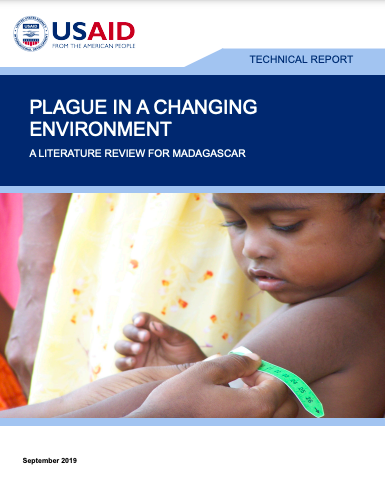USAID, 2019

While much is known about the biology of plague in Madagascar, linking climate and environmental drivers to plague incidence remains a poorly understood but important challenge. Climate variability and change, combined with increasing urbanization and land conversion, impact the natural environments in which plague thrives. Human behavior adds another dimension to this complex interaction, complicating efforts to surveil and treat plague outbreaks.
This report from the USAID-funded Adaptation Thought Leadership and Assessments (ATLAS) project examines the environmental factors that contribute to the emergence of plague and plague dynamics in Madagascar, and aims to identify the potential implications for decision-making and intervention in a changing environment. The report includes an annotated bibliography of key sources identified in the course of the review, and highlights areas for future research.



